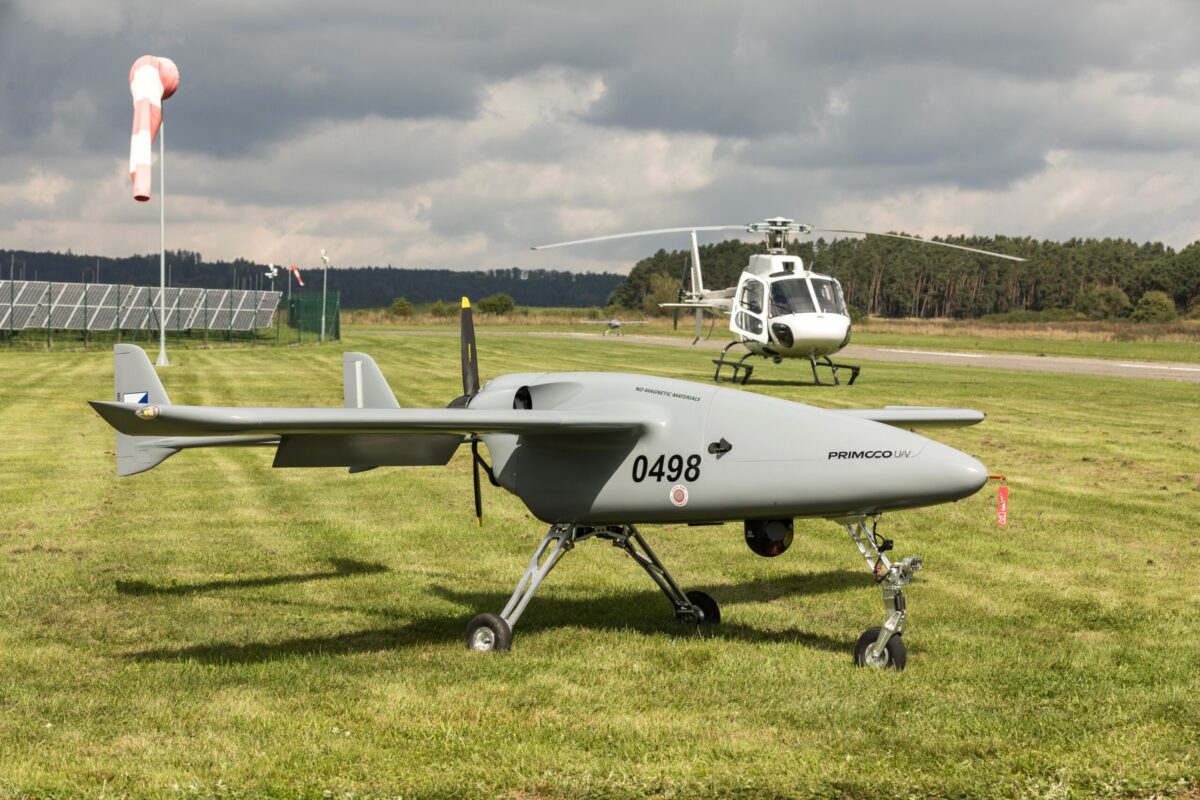Innovative Solution Enhances Mobile Network Recovery During Emergencies
Primoco UAV SE and T-Mobile Czech Republic have successfully integrated an LTE network BTS base station into the Primoco UAV One 150 unmanned aerial vehicle. This collaboration aims to significantly reduce mobile network recovery time during emergencies, with potential applications across the European Union.

Current mobile crisis communication solutions often rely on ground vehicle-based systems, which can be impractical or too slow to deploy in emergencies like fires, floods, and windstorms. By integrating a BTS station into the Primoco UAV One 150, which can carry up to 30 kg of equipment, these limitations are addressed. The aircraft meets all European civil, military, and safety regulations and is approved for operation in nearly ten EU countries.
Ladislav Semetkovský, CEO of Primoco UAV SE, highlighted the importance of this cooperation: “Crisis management support is one of our main product lines. Unmanned technologies enable rapid deployment in places where it is needed, and we see many opportunities for similar deployments in the Czech Republic, be it large-scale fires, tornadoes, or floods. Co-operation with T-Mobile fits perfectly into this system, as communication in affected areas is one of the key services that must be provided in the event of an emergency. Together with T-Mobile specialists, we integrated a new generation BTS station into our aircraft and verified the capabilities of this solution during a series of multiple-hour test flights. The entire system can be deployed anywhere in the European Union, as our aircraft fully complies with European regulations and the BTS payload does not affect the key parameters of its operation and safety.”
Using UAVs for mobile signal coverage can be essential in ensuring mobile network operation in affected areas. This solution can also provide temporary coverage in locations where new construction or densification of base stations is not allowed. Jaroslav Holiš, Research & Development Senior Manager at Deutsche Telekom, overseeing the project for T-Mobile, stated: “Our solution, developed together with Primoco UAV, is quite unique in Europe. It can fundamentally help the work of the integrated rescue system and the army has also shown interest in it. But we’re still at the beginning. We have a workable concept, but we need to set up regulation within Europe and we are also starting to discuss synergies with EU governments to finance the operation of this solution.”
The Primoco UAV One 150, equipped with 8 kilograms of T-Mobile’s equipment, operates at altitudes of one to two kilometres. The UAV takes off and lands autonomously, with testing conducted at the Písek – Krašovice airport. Depending on the take-off weight, the UAV can stay airborne for up to 15 hours.
Read more:
- Czech Primoco UAV to Supply Navigational Calibration System for Airports
- Verizon’s Response Team Launches Tethered Drone to Restore Communications to Sanibel Island
- Elistair Introduces the Orion HL Tethered Drone for Tactical Communications

Miriam McNabb is the Editor-in-Chief of DRONELIFE and CEO of JobForDrones, a professional drone services marketplace, and a fascinated observer of the emerging drone industry and the regulatory environment for drones. Miriam has penned over 3,000 articles focused on the commercial drone space and is an international speaker and recognized figure in the industry. Miriam has a degree from the University of Chicago and over 20 years of experience in high tech sales and marketing for new technologies.
For drone industry consulting or writing, Email Miriam.
TWITTER:@spaldingbarker
Subscribe to DroneLife here.







Leave a Reply